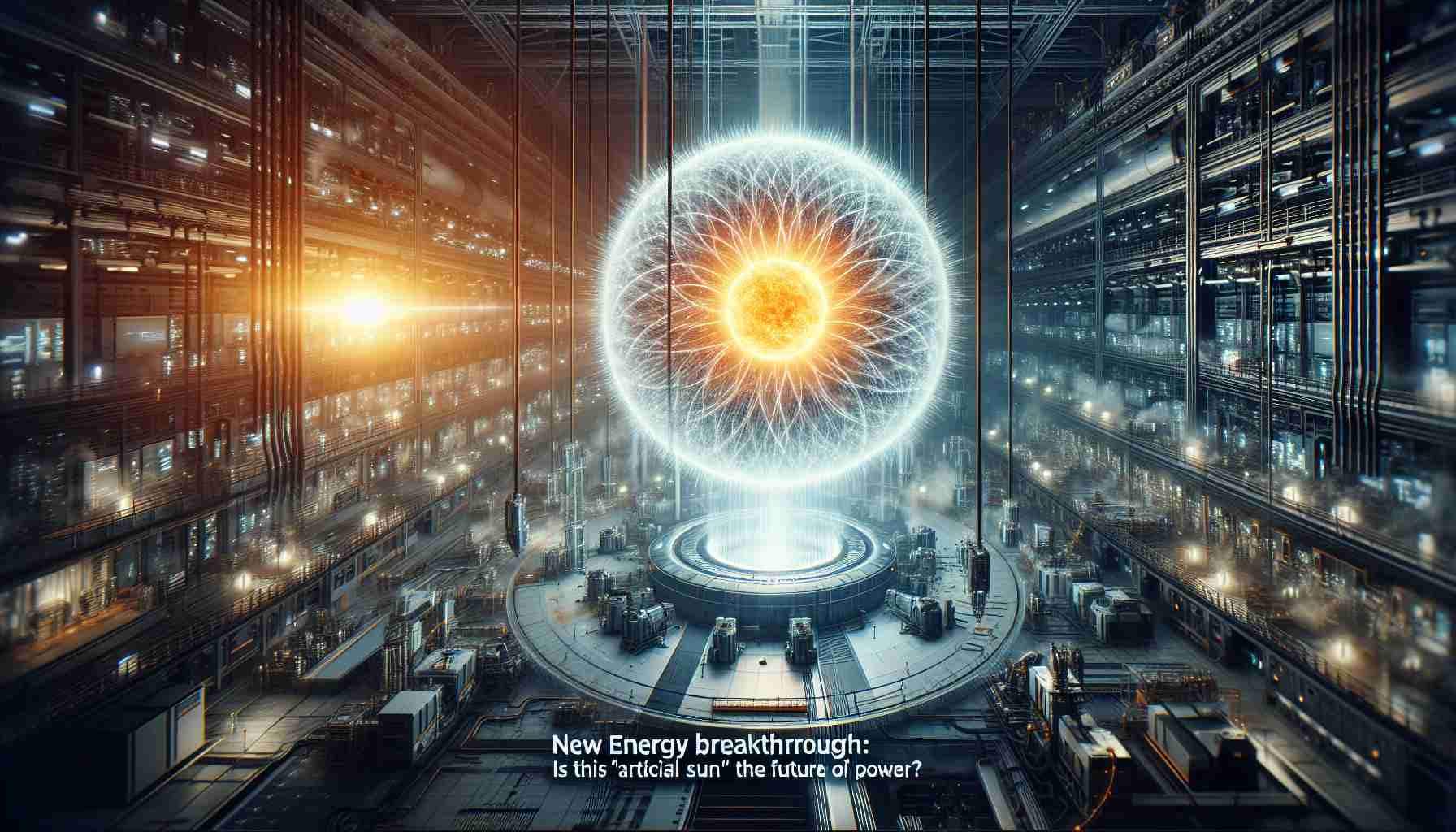Africa’s Energy Conundrum: Navigating Towards a Nuclear Future
Africa finds itself at a pivotal junction in its energy journey, compelled by the need to meet increasing demands as its population surges towards an estimated 3.2 billion by 2066. The current energy consumption per capita, a modest 3 barrels of oil equivalent, underscores a considerable shortfall against the needed 8.62 barrels for sustainable progress. This disparity paints a formidable picture for the continent’s energy future.
The Underlying Drivers: Population and Economic Growth
The accelerating population growth in Africa is not just a statistic—it’s a growing reality that propels the continent’s energy needs to potentially surpass those of India by 2061. Economic growth and heightened productivity provide further momentum to this accelerating demand.
The Current Energy Makeup and Global Context
Despite promising avenues in renewable energy, its share remains a scant 2% of Africa’s energy production. Wind and solar, while viable for household energy requirements, are hampered by their intermittent nature. The energy landscape continues to be dominated by fossil fuels, with projections indicating oil, gas, and coal will maintain a significant presence through 2050.
The Nuclear Proposition: Turning Potential into Reality
Amidst these challenges, nuclear energy emerges as a transformative prospect. Presently underrepresented in Africa, with South Africa hosting the continent’s sole operational plant, new developments in countries like Egypt are turning attention towards nuclear possibilities.
# Benefits and Hurdles
Nuclear power promises consistent energy supply and lower carbon emissions, offering a reliable alternative amidst volatile oil and gas markets. Yet, substantial barriers remain, including infrastructure demands, public safety perceptions, and the necessity for robust regulatory measures.
Strategic Vision for a Nuclear-Powered Tomorrow
The path to a nuclear-enabled Africa requires careful navigation through technological partnerships and enhanced regional cooperation. By integrating nuclear solutions with existing energy frameworks, the continent could secure energy stability and promote sustainable development.
In embracing the nuclear route, Africa positions itself to harness not just energy, but a future marked by economic resilience and equitable growth, setting an inspiring precedent for other regions navigating similar energy complexities.
Africa’s Nuclear Energy Vision: Implications for the Environment, Humanity, and Economic Growth
Africa stands at a crossroads, faced with the challenge of bridging its energy gap while accommodating a burgeoning population. The current energy demand, propelled by both population and economic growth, outpaces supply significantly. As Africa contemplates its energy future, nuclear power presents both an opportunity and a challenge, with widespread implications across various spheres including the environment, humanity, and the global economy.
Environmental Impact
Nuclear energy offers a substantial reduction in carbon emissions compared to traditional fossil fuels. With climate change being an ever-pressing global issue, a transition to nuclear power holds potential for significant environmental benefits. As African countries develop their nuclear capabilities, there will be a decline in greenhouse gas emissions, contributing to global efforts to curb climate change. However, the challenge of nuclear waste disposal and the risks of contamination remain concerns that must be managed through stringent regulatory frameworks.
Human Impact
The introduction of nuclear energy across Africa also means advancements in technology and education. Developing nuclear infrastructure necessitates a skilled workforce, leading to improvements in education and training programs. This has the potential to elevate communities by providing high-quality jobs and fostering innovation. Yet, public perception and safety concerns may cause resistance. Addressing these concerns through transparent communication and safety assurances will be crucial to gaining public trust.
Economic Ramifications
Economically, nuclear energy could prove transformative for Africa. Stable and reliable energy supply is foundational for industrial growth and economic resilience. By reducing reliance on imported fossil fuels, African countries can achieve greater energy independence, enhance productivity, and spur economic development. Moreover, the establishment of nuclear power plants can attract foreign investment and facilitate international partnerships, which are key drivers of economic progress.
Future Implications for Humanity
As Africa navigates towards a nuclear future, its strategy could set a precedent for other regions grappling with similar energy dilemmas. A successful pivot to nuclear energy could demonstrate the viability of nuclear solutions in emerging markets, potentially reshaping global energy policies and promoting sustainable development. This trajectory not only empowers Africa but underscores a broader narrative on the importance of innovative energy solutions in ensuring a stable and equitable future for humanity.
In embracing nuclear energy, Africa is not just seeking to fulfill its immediate energy requirements but is also aligning itself with a future where energy stability supports equitable growth and environmental stewardship. This journey could well inspire other parts of the world to explore nuclear energy as a viable complement to renewable solutions, highlighting the intricate balance between modern energy demands and sustainable practices crucial for the future of humanity.
Is Nuclear Power Africa’s Energy Solution? A Deep Dive into Its Prospects and Challenges
Innovative Trends in Nuclear Energy for Africa
With the rapid advancements in nuclear technology, small modular reactors (SMRs) present a promising innovation for Africa’s energy infrastructure. Unlike traditional large-scale reactors, SMRs can be deployed in less accessible regions, offering a scalable and flexible energy solution. This adaptability is crucial for meeting diverse energy demands across the continent.
Comparative Analysis: Nuclear vs. Renewable Energy in Africa
While both nuclear and renewable energy assets provide low-carbon alternatives, they serve different functions within Africa’s energy matrix. Nuclear power offers steady baseload energy, crucial for industries and urban centers, whereas renewables like solar and wind are more suited for decentralized rural electrification. The strategic integration of both can optimize energy reliability.
Key Controversies Surrounding Nuclear Adoption
Nuclear energy deployment in Africa isn’t without its controversies. Public debates often focus on safety concerns, fueled by past international nuclear accidents. The economic feasibility of nuclear projects also draws scrutiny, as initial capital investments are substantial. Governments and private sectors must engage in transparent discourse to address these concerns effectively.
FAQs: Understanding Africa’s Energy Landscape
Q: Why is Africa considering nuclear power instead of relying solely on renewables?
A: While renewables are abundant, their intermittency and current technological limitations require a stable energy complement. Nuclear energy can provide reliable baseload power, critical for supporting industrial growth and urban demands.
Q: How will Africa manage nuclear safety and waste disposal?
A: Implementing rigorous regulatory frameworks and borrowing best practices from countries with established nuclear programs can enhance safety standards. Innovations in waste management technologies, such as deep geological repositories, offer long-term solutions for nuclear waste challenges.
Pros and Cons of Africa’s Nuclear Transition
Pros:
– Consistent Energy Supply: Nuclear power provides a stable energy source, reducing dependence on variable fossil fuel markets.
– Low Carbon Footprint: Significant reduction of carbon emissions aligns with global sustainability goals.
Cons:
– High Initial Costs: The setup and development of nuclear facilities demand massive capital investments.
– Public Perception and Safety Risks: Misgivings about safety and potential nuclear accidents can impede project progress.
Strategic Partnerships and Technological Exchange
Leveraging partnerships with established nuclear nations and institutions can accelerate Africa’s nuclear capabilities. Collaborative ventures can facilitate technology transfer, capacity building, and infrastructure development, ensuring sustainable and efficient energy transitions.
Insights and Predictions for Africa’s Energy Future
Africa’s energy transformation faces a horizon of technological breakthroughs and policy evolution. By 2050, a balanced energy mix including nuclear, renewables, and improved fossil fuel technologies could propel economic development and foster environmental stewardship. African countries are poised to pioneer sustainable energy models for emerging economies worldwide.
Links for Further Exploration
For more information on Africa’s nuclear energy prospects and the global perspective, visit World Nuclear Association and International Energy Agency. These organizations offer detailed insights, data, and updates on energy strategies and technological innovations.
In conclusion, the intersection of nuclear energy prospects with renewable strategies presents a profound opportunity for Africa. By addressing the complexities and harnessing technological innovations, Africa can secure its energy future while contributing to global sustainability efforts.
The source of the article is from the blog myshopsguide.com














